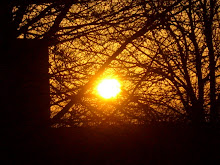What the Curlew Said, Nostos Continued, by John Moriarty, via Dublin Review of Books on "old evil":
As in Nostos, he refers to Captain Ahab’s obsessive hunting down of the whale in Melville’s Moby Dick. This he sees as a powerful, expressive image of the mindset that’s wrong with Western culture, through which nature is treated merely as something to be harnessed and exploited for practical benefit. A related problem is the old one of evil, which troubles him. “If things are ontologically so right how come they are so often so morally wrong?” He well recognises that nature itself is harsh and indifferent to human and animal suffering. He finds it “unfigurable” that the curlew in whose call he hears “gospels” is also a predator of worms. At the same time, central to his view is the recognition that we still carry within us today something from our entire human and animal past. A part of this has been the struggle to survive in an often hostile environment. Fear and apprehension have deep roots. But so too does wonder, along with dreams and aspirations. Moriarty sees us as still having the capacity to reawaken in ourselves the early stupendous wonder our distant ancestors must have felt on becoming aware of being in the world, a wonder which found expression in naturalist religious beliefs and practices.
*****
Musical interlude: Hermeto Pascoal, live at Montreaux 1979, zows! (particularly the solo about 6 minutes in...)

Geen opmerkingen:
Een reactie posten